From the Publisher

Understand the past. Explore the future. Live in the present.
|
|
|
|
|---|---|---|
|
|
|
|

Product description
Review
Interesting and provocative� It gives you a sense of how briefly we�ve been on this Earth ―
Barack ObamaJaw-dropping from the first word to the last� It may be the best book I�ve ever read ―
Chris EvansTackles the biggest questions of history and the modern world� Written in unforgettably vivid language ―
Jared DiamondStartling… It changes the way you look at the world ―
Simon MayoOne of the best books I�ve read recently� Gives an excellent overview of how our species has developed ―
Lily ColeSweeps the cobwebs out of your brain� Radiates power and clarity, making the world strange and new ―
Sunday Times Sapiens is packed with heretical thinking and surprising facts. This riveting, myth-busting book cannot be summarised in any detail; you will simply have to read it — John Gray ― Financial TimesAbout the Author
Prof Yuval Noah Harari has a PhD in History from the University of Oxford and now lectures at the Hebrew University of Jerusalem, specialising in World History. Sapiens: A Brief History of Humankind has become an international phenomenon attracting a legion of fans from Bill Gates and Barack Obama to Chris Evans and Jarvis Cocker, and is published in 65 languages worldwide. It was a Sunday Times Number One bestseller and was in the Top Ten for over nine months in paperback. His follow-up to Sapiens, Homo Deus: A Brief History of Tomorrow was also a Top Ten Bestseller and was described by the Guardian as ‘even more readable, even more important, than his excellent Sapiens‘. 21 Lessons for the 21st Century, was a Number One Bestseller and was described by Bill Gates as ‘fascinating’ and ‘crucial’. Harari worked closely with renowned comics illustrator Daniel Casanave and co-writer David Vandermeulen to create his latest book, an adaptation of his first bestseller, Sapiens Graphic Novel: Volume 1.
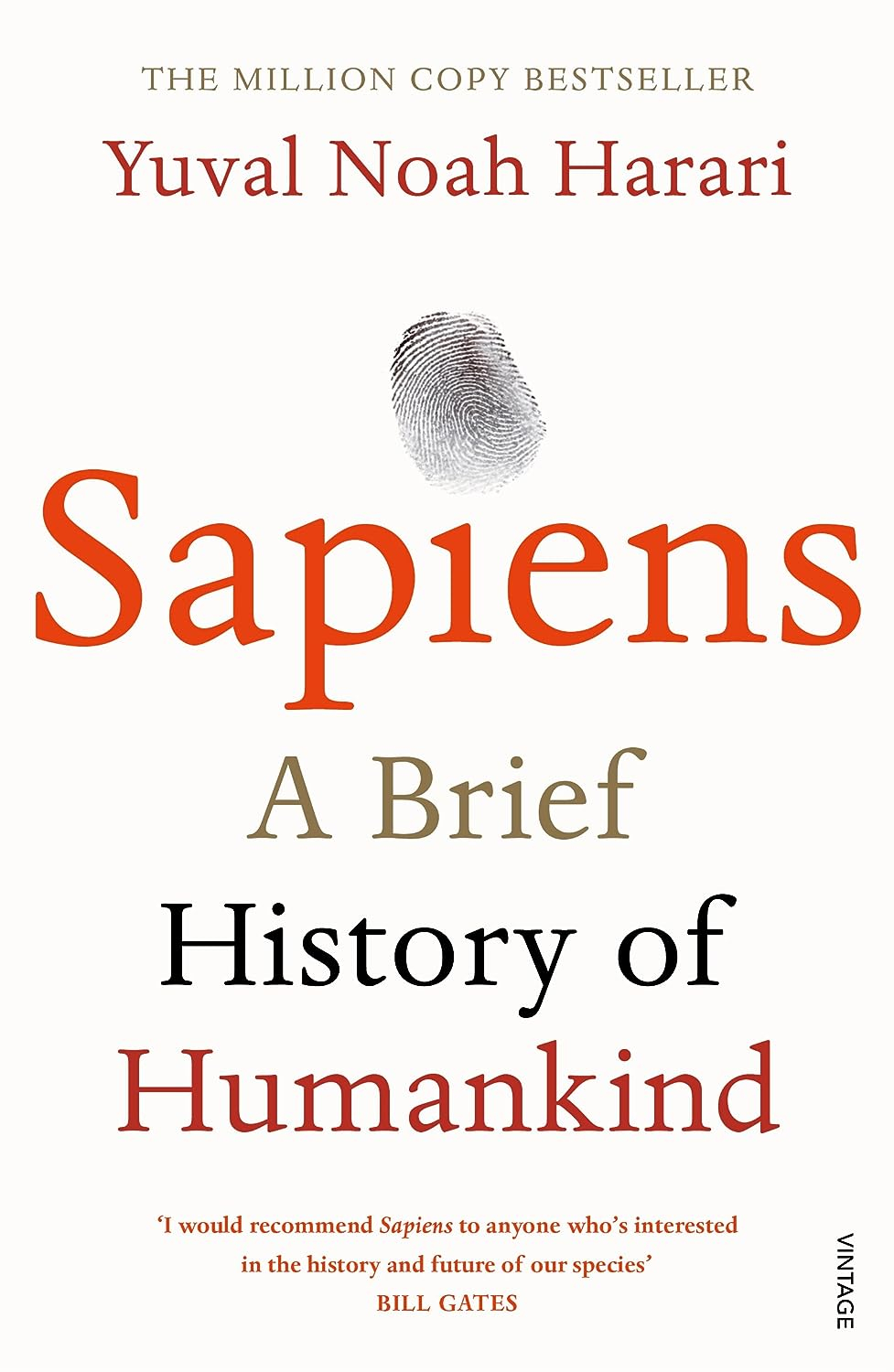
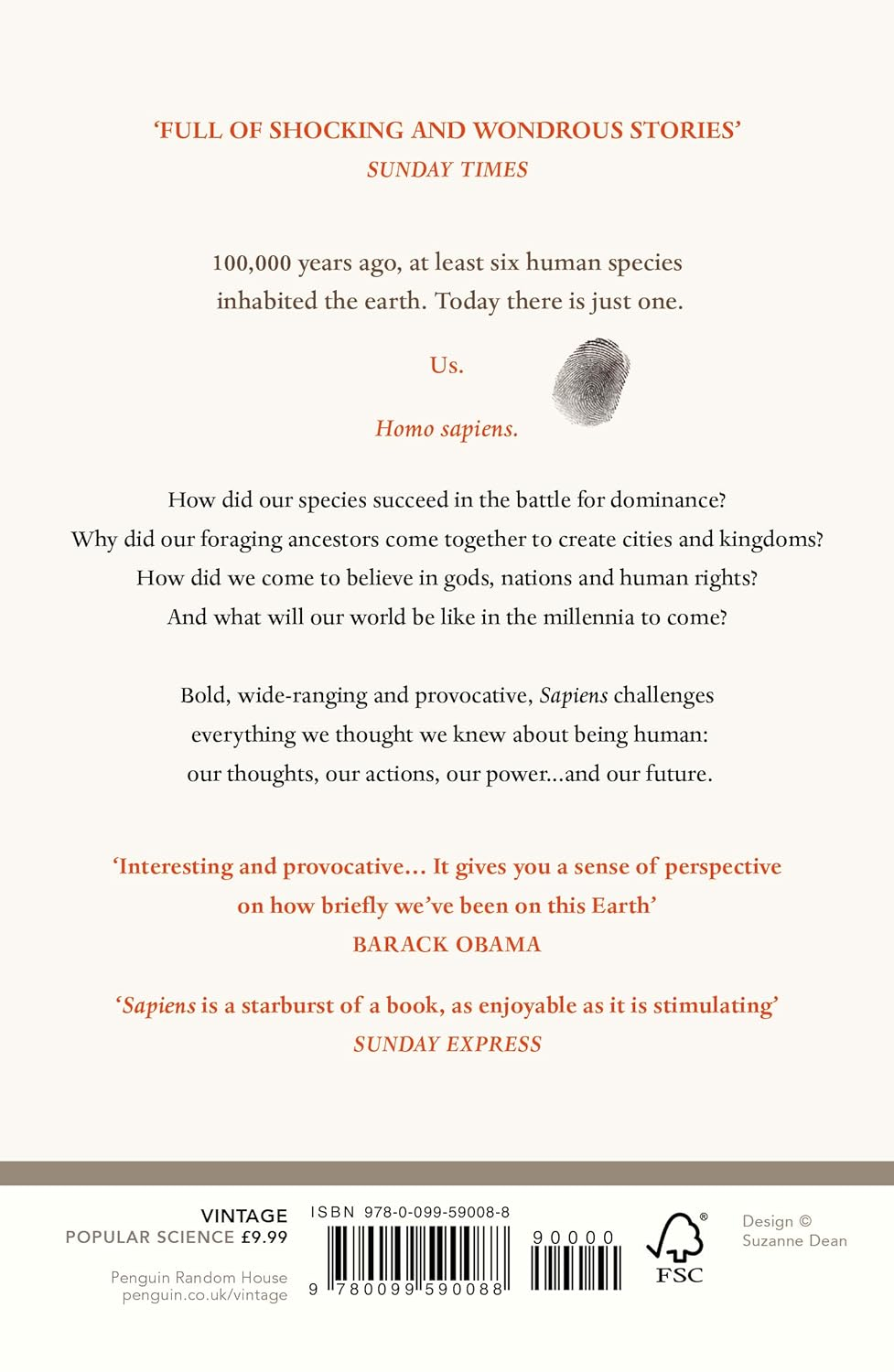
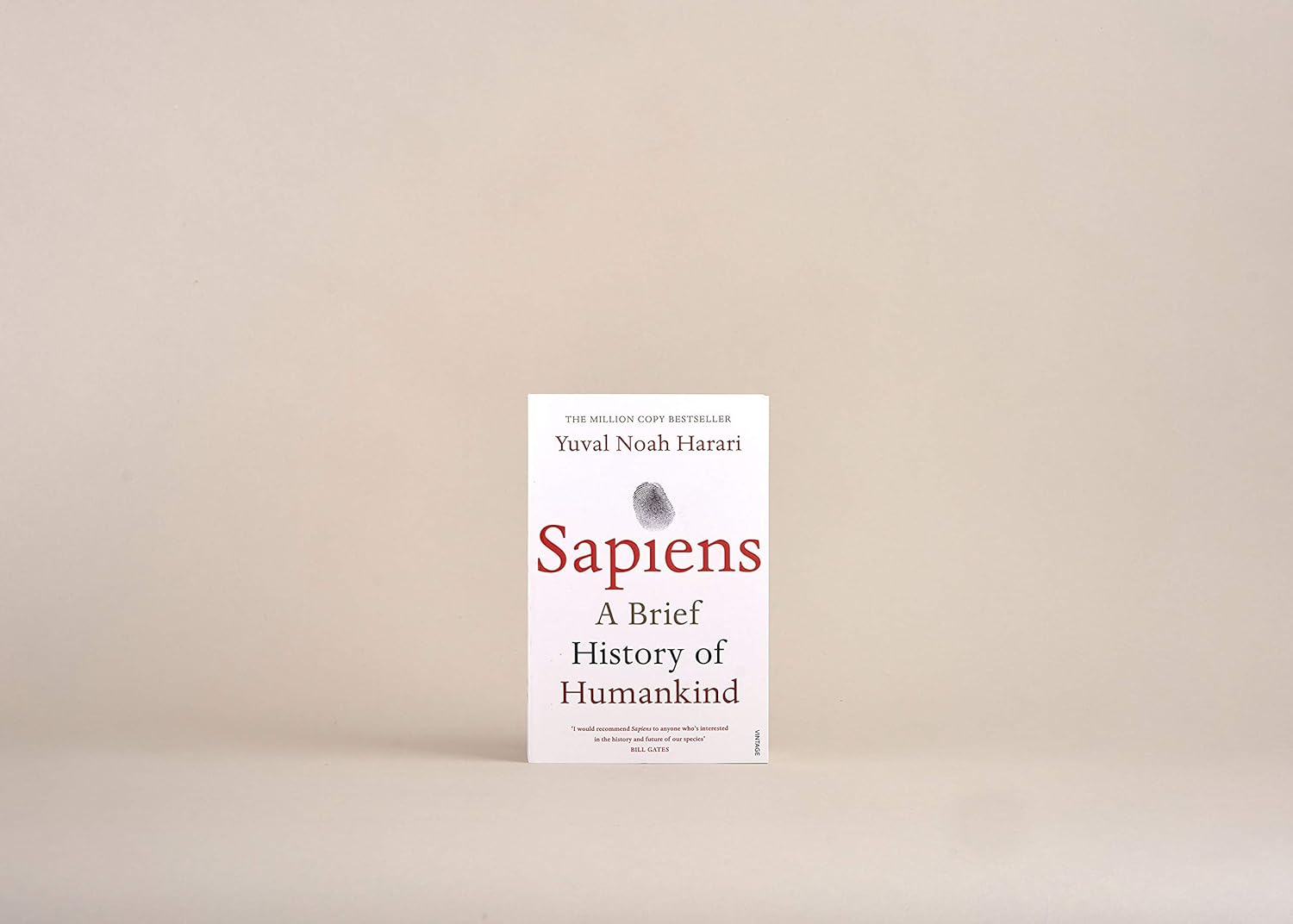
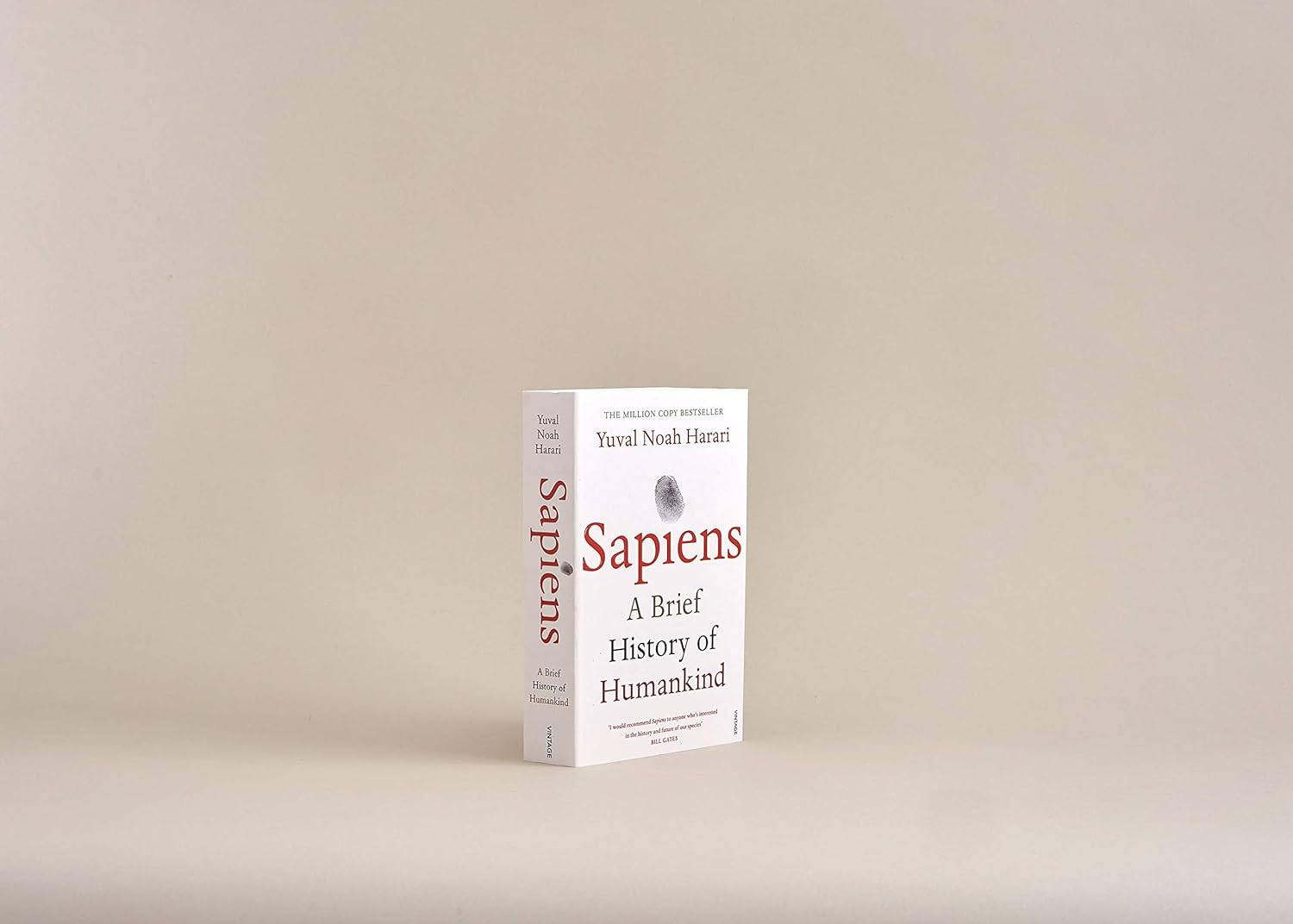

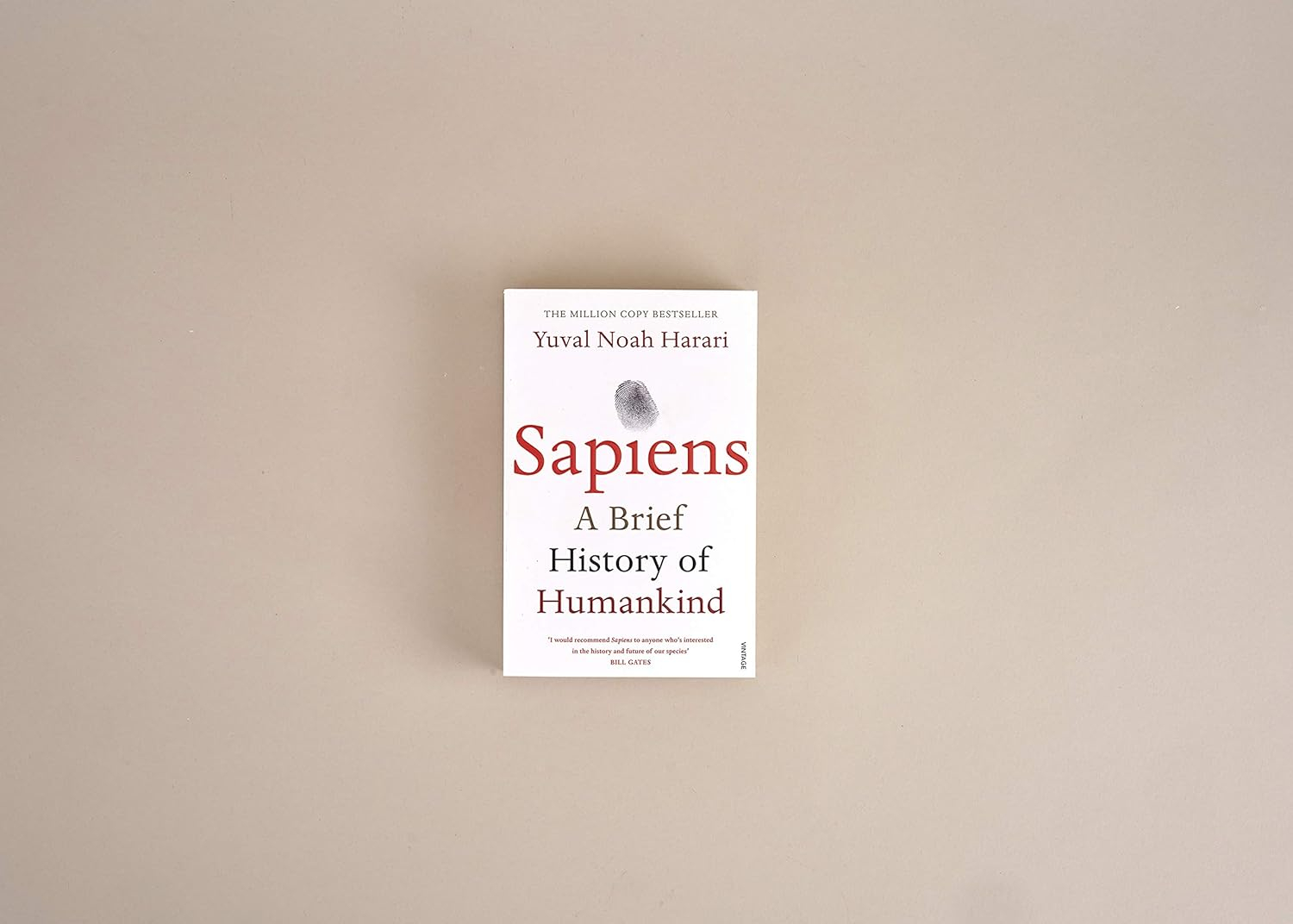




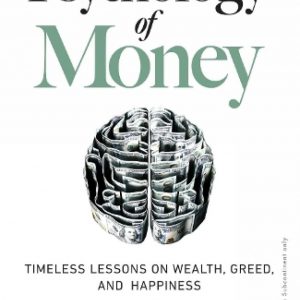
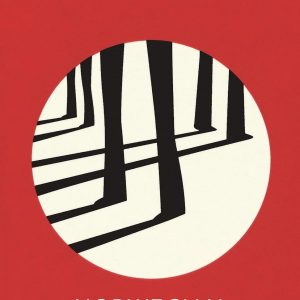

Rahul Rai Khatri –
BookReviewsFromHeart @ BloggerIt’s quite rarely when you came across a person or a book which just amazes you and a part of it just housed into your mind and brain. By the way , What do know about Humans(us) ? I was taught,like many others, in school that Homo Sapiens is the scientific name for Humans. Homo Sapiens -the species Sapiens(Wise ) of the genus (Homo) and is the only living human species on earth but none of them debriefed us anything about the conditions in which we actually arose . Were there exist only Homo Sapiens or there exist other human species too ? 100,000 years ago,at least, six human species inhabited the earth. Today, there’s just one. Us. And What injected in the minds of kids at a very young age , including me, is that it’s the climate which causes the extinction of many animal species . But is it a complete truth ? Few tried to find . Honestly, I didn’t but this book answered so many answers to the questions which were not even budded in our brain .Magnum Opus this book is a wide-ranging and bold work of non-fiction which challenges everything we thought we knew about being human from our thoughts to our actions and even our future . Sapiens tabled the answers of intricate questions raised from curiosity while studying the history of our own species. Book is divided into four major parts- The Cognitive Revolution, The Agriculture Revolution, The Unification of Humankind & The Scientific Revolution . Every Part is further divided into subparts & gives ample description on the mentioned topics. In the first section, The Cognitive Revolution , Author talks about the existence of other human species that exist before Homo Sapiens and how Homo Sapiens turned out to be the environment serial killer which had annihilated many species including his own siblings and many other animals.This section also reveals the way of living of our ancestors and the little myths they create to bind the humankind.Next comes , The Agriculture Revolution, which explains that how our ancestors who were foragers and had the only aim to hunt and live renounced their practice of living a nomadic life and settled to sow and grow . How this decision of settling at a place for farming turned out to be the most decisive moment in the history of humankind which changed the aberrated the history and most importantly how Agriculture turned out to be the biggest fraud of history . our ancestors who usually stay in a band of 15-20 eventually start living in a group of 100s when the agriculture flourished ,And after the agricultural revolution, human societies grew ever larger and more complex .Myths and fictions accustomed people, nearly from the moment of their birth, to think in a certain way and to observe certain rules. They thereby created artificial instincts that enabled millions to strangers to cooperate effectively and this network of artificial instincts is called ‘Culture’. The Unification of Humankind holds the contents which were put into action many years ago to unite the mankind either with the help of ‘Culture’ or ‘Religion’ or ‘Nations’. This section also enlightens about the crucial role played by different religions sprouted in the different part of the world to add more and more strangers in a community. Harari in this section depicts how Mythology helped in maintaining law & order while money gave us something we can really trust.And the last section , The Scientific Revolution, which stretched for about 2nd half of the book gave us a clear glimpse of the beginning of the scientific revolution which introduced humans to their actual capabilities of being the wisest species on earth. Samen which lands us on the moon to manufacturing weapons of mass destruction.So Sapiens is a must read , thrilling and breathtaking account of our extraordinary history – from insignificant apes to the rulers of the world.It’s quite rarely when you came across a person or a book which just amazes you and a part of it just housed into your mind and brain. By the way , What do know about Humans(us) ? I was taught,like many others, in school that Homo Sapiens is the scientific name for Humans. Homo Sapiens -the species Sapiens(Wise ) of the genus (Homo) and is the only living human species on earth but none of them debriefed us anything about the conditions in which we actually arose . Were there exist only Homo Sapiens or there exist other human species too ? 100,000 years ago,at least, six human species inhabited the earth. Today, there’s just one. Us. And What injected in the minds of kids at a very young age , including me, is that it’s the climate which causes the extinction of many animal species . But is it a complete truth ? Few tried to find . Honestly, I didn’t but this book answered so many answers to the questions which were not even budded in our brain .Magnum Opus this book is a wide-ranging and bold work of non-fiction which challenges everything we thought we knew about being human from our thoughts to our actions and even our future . Sapiens tabled the answers of intricate questions raised from curiosity while studying the history of our own species. Book is divided into four major parts- The Cognitive Revolution, The Agriculture Revolution, The Unification of Humankind & The Scientific Revolution . Every Part is further divided into subparts & gives ample description on the mentioned topics. In the first section, The Cognitive Revolution , Author talks about the existence of other human species that exist before Homo Sapiens and how Homo Sapiens turned out to be the environment serial killer which had annihilated many species including his own siblings and many other animals.This section also reveals the way of living of our ancestors and the little myths they create to bind the humankind.Next comes , The Agriculture Revolution, which explains that how our ancestors who were foragers and had the only aim to hunt and live renounced their practice of living a nomadic life and settled to sow and grow . How this decision of settling at a place for farming turned out to be the most decisive moment in the history of humankind which changed the aberrated the history and most importantly how Agriculture turned out to be the biggest fraud of history . our ancestors who usually stay in a band of 15-20 eventually start living in a group of 100s when the agriculture flourished ,And after the agricultural revolution, human societies grew ever larger and more complex .Myths and fictions accustomed people, nearly from the moment of their birth, to think in a certain way and to observe certain rules. They thereby created artificial instincts that enabled millions to strangers to cooperate effectively and this network of artificial instincts is called ‘Culture’. The Unification of Humankind holds the contents which were put into action many years ago to unite the mankind either with the help of ‘Culture’ or ‘Religion’ or ‘Nations’. This section also enlightens about the crucial role played by different religions sprouted in the different part of the world to add more and more strangers in a community. Harari in this section depicts how Mythology helped in maintaining law & order while money gave us something we can really trust.And the last section , The Scientific Revolution, which stretched for about 2nd half of the book gave us a clear glimpse of the beginning of the scientific revolution which introduced humans to their actual capabilities of being the wisest species on earth. Samen which lands us on the moon to manufacturing weapons of mass destruction.So Sapiens is a must read , thrilling and breathtaking account of our extraordinary history – from insignificant apes to the rulers of the world.
Tirth Patel –
I see many people complaining about the wild leaps of logic and the lack of footnotes – but honestly, what did you expect in a 500 page book, not even with small print, that’s supposed to give you a summary of all history from the emergence of Homo sapiens to the present day? Personally, I thought the basic idea was terrific: the author has taken it upon himself to defend the Book of Genesis and show you that it’s all true. I have seen creationists attempt the same thing and fail miserably, with their pseudo-scientific explanations of why the Earth is actually six thousand years old, how the Flood explains geology, etc. None of this nonsense for clever Dr Harari. He doesn’t bother arguing about the places where science has obviously got it right (the Big Bang, plate tectonics, evolution), but takes them as givens. He doesn’t get into the tangled reasoning about where a Creator might come into the picture; here, there is none.Instead, he cuts to the chase and gives you a story that’s actually very interesting. About ten thousand years ago, people largely stopped being hunter-gatherers and started being farmers. This is usually presented by modern commentators as a Good Thing. But in Genesis, it isn’t: we are expelled from the Garden of Eden and forced to eke out a miserable existence tilling the unforgiving soil, and now we have to live with the consequences. We have had the presumption to eat the fruit of the Tree so that we may become as gods, knowing good and evil. Harari ingeniously defends the idea that this, more or less literally, is what happened. We became farmers, then we started developing better technology, then we constructed cities, and finally, very recently, we invented science. We have made the most of our position as lords of creation, driving many species extinct and turning a few others into efficient machines for producing meat. But none of this has made us happier. In fact, as the Bible says, it’s made us more and more miserable. We’re evolutionarily adapted for being hunter-gatherers, not software engineers or stock traders. We are on the verge of learning how to conauer death and make ourselves immortal: but even then, we won’t be as happy as we were back in the Garden.We’ll more likely find new and even worse ways to cut ourselves off from our true heritage.Harari takes the position that our great strength as a species, the thing that sets us apart from all other living beings, is our ability to make up stories about things that are only to be found in our imaginations, and then treat them as though they were real; by this process, they become real. As he points out, empires and religions and money don’t actually exist, but now they rule our lives. He’s particularly interesting on the subject of money. Again, I can see some readers who dislike what they call his cheerleading for modern Western society. I don’t think Harari is a fan of the West, and the book is in my humble opinion not Eurocentric at all; for example, Harari seems to like Buddhism rather more than Christianity. He’s just pointing out the indisputable fact that Western society has taken over the world, and he ascribes that, more than anything else, to the West’s ability to make up a better story about money, which we call capitalism. If this is where you’re coming from, talking about the power of myth to transform human existence, you don’t go overboard with the footnotes. There are no footnotes in the Bible. You do your best to tell a great story, and you hope that it will transform our existence.I think Harari’s done pretty well here in terms of achieving those goals. Kudos.
Atulya Sinha –
I tend to think of this book as a prequel to “Homo Deus,” simply because I happened to read them in the wrong order! In fact, “Sapiens: A Brief History of Humankind” was written several years before “Homo Deus: A History of Tomorrow.”Yuval Noah Harari, the author, is a professor of History and an intellectual polymath in the tradition of Bronowski, Issac Asimov and Carl Sagan. He has written several path-breaking books during the past ten years.This book is a sweeping dissertation on the history of mankind. On the very first page, we are told about the conceptual sequence of physics, chemistry, biology and history. Next, the author lists the three revolutions which have shaped the course of history: The Cognitive Revolution, the Agricultural Revolution and the Scientific Revolution. The book is divided into four sections, one for each of the three Revolutions and one serving as a bridge between the Agricultural and Scientific Revolutions. Let us examine these sections one by one.The section on the Cognitive Revolution begins with a “disturbing secret” – for a long time, Homo Sapiens was not the only human species. In the author’s own words, “The earth of a hundred millennia ago was walked by at least six different species of man.” The author says that more than one human species had learnt the use of fire. Homo Sapiens originated in East Africa and entered Eurasia through the Arabian Peninsula about 70,000 years ago. There are two conflicting theories about the interaction between Sapiens and the other species, known as the Interbreeding Theory and the Replacement Theory. The author speculates that the truth lies in between these two theories, although there is a strong likelihood that violence and genocide had occurred, as “Tolerance is not a Sapiens trademark.”The Cognitive Revolution comprises new ways of thinking and communicating, which arose between 70,000 and 30,000 years ago. Sapiens bonded with “gossip” and formed bands with upto 150 members. Beyond this limit, says the author, human cooperation becomes possible only through common myths, or imagined reality, leading to trade and cultural evolution.Further, “The wandering bands of storytelling Sapiens were the most important and most destructive force the animal kingdom had ever produced… The settlers of Australia, or more accurately, its conquerors, didn’t just adapt, they transformed the Australian ecosystem beyond recognition.” The combination of climate change and human hunting changed not only Australia, but also Siberia, North America and South America.Coming to the next Revolution, agriculture began around 9500 – 8500 BC in south eastern Turkey, and simultaneously in other parts of the globe as well. The author surprisingly describes Agriculture as “history’s biggest fraud” and justifies it by saying that “the extra food did not translate into a better diet or more leisure. Rather, it translated into population explosions and pampered elites. The average farmer worked harder than the average forager, and got a worse diet in return.” As the population increased and animals were domesticated, the possibility of returning to a foraging lifestyle diminished. Rearing of animals involved (and still involves) extreme cruelty. Eventually, as trade began and data arose, some rudimentary forms of writing began. Next, hierarchies came up based on imagined orders. Simultaneously, gender discrimination arose in various societies.The third section of the book is titled “Unification of Mankind,” which covers human culture. The author identifies three universal orders: economic, or the monetary order; political, or the imperial order; and finally, religious order exemplified by religions such as Buddhism, Christianity and Islam. There are detailed chapters on each of these.The fourth and last section of the book covers the Scientific Revolution. Beginning with the philosophical aspects of ignorance and the scientific temperament, the author presents another striking line of thought: “The feedback loop between science, empire and capital has arguably been history’s chief engine for the past 500 years.” The next few chapters are devoted to these topics. Subsequently, the author discusses the Industrial Revolution, along with energy, mass production and the social impact of technology. This is followed by a chapter focusing on the relationship between prosperity and happiness, followed by some speculations about the future.There can be no doubt that this book is a tour de force, which compels the reader to think. However, various criticisms can be levelled against Dr Harari. The foremost of these is that many speculations, theories and opinions of the author are presented as established facts. The other major potential for criticism lies in the selection of material and the relative emphasis on various topics. This reviewer, for example, feels that most of the chapters in the third and fourth sections of the book are too long and verbose.I cannot end this review without comparing this book with the author’s subsequent work “Homo Deus,” which I happened to read first. There is considerable overlap between the topics covered in the two books. The speculations about the past in this book are mirrored by speculations about the future in the other book. But there is an important difference: while this book leaves the reader with a sense of shame for belonging to Homo Sapiens, the other one gives hope that someday there will be a sense of pride arising out of being human. Finally, if one had to choose to read only one of these two books, I would unequivocally recommend “Homo Deus.”
Rahul Prasad –
Iam too less to say at all about This award winning title. I gifted it to my family!I also have a podcast of it.But nothing could be more relaxing than reading a paperback ( paperback were introduced to south asian community such that we can afford to buy them ) holding in your hand and turning pages!An avid reader.
Yash Choudhary –
Procotive and Thought-provoking, every word,line from beginning to ending was lit
Hashim –
This is the journey through time. The Author explains and analyses our evolution from stone age to where we are now. We can see how our actions as humans compounded over years and led us to drastic changes like the invention of agriculture leading all the way up to the industrial revolution and beyond. The book provides some wonderful insights such as how as people our collective belief in something made it real. Take currency for example. It only has value and meaning because we, as people, collectively choose to believe in it right? If not, how can a piece of paper be of any use to us? If these types of insights interest you, then you should definitely dive into Sapiens to find out more. The book itself is a bit long with around 500 pages. But don’t let this discourage you, once you are in it, you don’t even know the pages turning over.
Maneesha –
Very impressive read. Gained new perspective. Precisely that is why I read books. It served the purpose. Strongly recommended for all.
Dr Maitreyee Joshi –
SAPIENSI have been reading SAPIENS by Yuval Noah Harari and it does give you a feel of watching a long documentary of the march of Sapiens on the planet through millenia, on a huge screen.According to the book we know about human evolution only from the last 70,000 years when the cognitive revolution started. It was the hunter gatherer stage of the sapiens. Here the author clarifies a very important misconception that we, the sapiens are unique, and that there is and was no other species like us. He says that the continents separated by oceans were inhabited by different human species either at the same time or different times. Just as monkeys have many species, humans had many different species, like the neanderthals and homo erectus. Just as there is no possibility of mating between monkeys of different species so was the case with different human species. But Sapiens were by far the most destructive kind of humans and wherever they travelled, they destroyed other human species, jungles, and wild animals for their benefit. Neanderthals became extinct in the same way. Rather, the whole human evolution and history which passes from Cognitive revolution through agricultural revolution, industrial revolution and scientific revolution, is a story of human progress, but also has a backstory of large scale massacre, genocide and destruction. Agricultural revolution led to the gaining a partial control of availability of food and creation of villages and cities but destroyed the jungles. Taming of animals led to communicable diseases. Agriculture also made sapiens lose their freedom over their time which was plenty with the hunter gatherers. It started the exploitation of the cattle and poultry animals like never before.Industrial revolution led to slavery and large scale destruction of agriculture land. Industrial revolution exploited the natural resources and there was always an insecurity of exhausting them, but until today sapiens have become successful in discovering novel resources to fuel the industrial revolution, to the extent that now most of us believe that they are inexhaustible. Capitalism which ran hand in hand with the industrial revolution, initially stood on the back of slave trade. It gave rise to some unfair capitalists who exploit their employees. Capitalism believes in the credit system and dreams of the future, but if the future does not deliver goods, the capitalist bubble does not take long to burst just like the 2007 US economic slowdown when the housing bubble burst.Science taught sapiens to realize and say that they do not know the answers to many things in their quest for a better life. Scientific thinking constantly challenges religious dogmas but all of our inventions and discoveries march ahead only after they have crushed those on whom the experiments were carried out as in testing medicines on lab animals.Today the scientific revolution has reached a place where sapiens are experimenting on transferring thoughts to bionic limbs, to creating genetically superior species of plants and animals, to developing AI having abilities superior to sapiens themselves. These discoveries and inventions are fraught with moral and ethical dilemmas. We have not yet lost our faith in reaching that place in history when everyone will be comfortable and we would have created heaven here itself on planet earth. Capitalists say, it’s just around the corner. But is it?Today we are living in the era of peace and luxury like never before. There was no time in history when the planet was so less fraught with wars. Nuclear bombs are a double edged sword. Their existence holds such a huge threat to human existence that no country chooses war over other measures of achieving self- interest. There are a few skirmishes here and there, but not the way the planet was ravaged with wars before the second world war. Those wars, religious or otherwise were so ubiquitous that they wiped out humongous other micro cultures and tribes. Wiping or destroying others for self interest has been as old as the cognitive revolution.On the other hand sapiens are trying to discover ways and means of lasting happiness and the meaning of its own existence. Most of the time, new discoveries about human happiness match with the texts which the old philosophers and saints have written eons back, but there is a sense of satisfaction in finding the match between the new and the old.Finally, scientifically and objectively human life has no meaning. It started as bacteria and viruses, which had no consciousness and aim or ambition. Evolution of sapiens just was an accident in the evolution of life. Meaning to the life of sapiens is what they give. So better let it be a well thought of because we are just about to start playing God.
Karthick S –
Quite often I get this thought, ‘The universe is large. There are so many galaxies and our solar system is nothing more than a speck. Earth is even smaller. Yet, we are the only known living beings. The history of Earth is so vast and it has been there for millions of years. Humans have been there for significant part. Yet, we live in a space with so advanced technology and process complicated stuff out of a tiny little thing in our head known as Brain. Why are we destined to do this?’ Yuval Noah Harari has tried to explain this in the book Sapiens. It is an attempt to explain how have Humans come to this stage.The author defines three main timelines in the history of Homo Sapiens1. Cognitive Revolution (70000 years ago)2. Agricultural Revolution (10000 years ago)3. Scientific Revolution (500 years ago)When we co-existed with the animals out there in the wild, we were not on top of the food chain. The ancient stone tools discovered are not designed to kill animals. They were used to break bones and eat the marrows inside (So, the big Cats hunt and then lesser animals eat the rest and then scavengers scavenge and after all that humans broke the bone and ate the marrow). Being that weak, Sapiens had a lucky intervention in the form of Cognitive Revolution. Most animals can communicate in some form, but none as detailed and as sophisticated as a Human. This created knowledge and helped humans form groups and communities. It is interesting that Gossips form an important means of communication. It helps establish trust (and it continues till the day).This was the phase when we were Hunter-Gatherers and Foragers. The author defines this as the best period of Sapiens. They had a relaxed lifestyle, worked less and were fit as they ate a mix of all nutrients. Interestingly, our liking for Sweets has been hardwired from this age. Sweets were such a rarity then and evolution made Sapiens gorge on any sweet they find as it provides abundant energy.Accidents have always been an important cause of turnaround in Human history. Agricultural revolution was no less. A few Hunter Gatherers found that the wheat they gathered spilled on the way and new wheat sprouted. Thus started the domestication. The author further says that it was actually plants like Potato, Wheat and Rice that domesticated us than we domesticating them. Growing these required lot of energy – you had to settle down, plough, remove weed, water and it consumes lot of time. And you end up with one type of food as against the Hunter Gatherers. And due to settling down the human population arose significantly. Thus bigger societies were forming with a big hope of tomorrow, although the life of a farmer was worse than that of a Hunter Gatherer. Hence, the Author calls Agricultural Revolution as the ‘Biggest Fraud’ in Human History. And this curse continues to chase us today as he says,’How many young college graduates have taken demanding jobs in high-powered firms, vowing that they will work hard to earn money that will enable them to retire and pursue their real interests when they are thirty-five? But by the time they reach that age, they have large mortgages, children to school, houses in the suburbs that necessitate at least two cars per family, and a sense that life is not worth living without really good wine and expensive holidays abroad. What are they supposed to do, go back to digging up roots? No, they double their efforts and keep slaving away.,’Agricultural Revolution led to unification of mankind in a way that could never happen with animals – we started having Fictional realities like Money, Country, Kingdom, God which doesn’t exist in nature. The author digs deeply into three main factors that led to mass unification of Humans – Money, Empire and Religion. All of this leads to Trust and enable unification. As he writes, It is interesting how deep the author goes into each of them and analyze the pros of cons of each.He also touches upon and pity the domesticated animals that are treated in a very cruel way. ‘Domesticated chickens and cattle may well be an evolutionary success story, but they are also among the most miserable creatures that ever lived. The domestication of animals was founded on a series of brutal practices that only became crueller with the passing of the centuries’In the final part, the author analyzes the reasons for Scientific Revolution starting out of Europe and how it changed the course of the world. He believes is started because the scientists accepted Ignorance in first place. They were ready to explore and gain knowledge. The kingdom supported them and eventually they conquered the world. He also explains the rise of capitalism and interlinking of capitalism and science.Finally, the author touches upon two aspects – the first one was something that I didn’t expect the author would touch upon – Happiness. He tries to find out what exactly Happiness is and how do we define that. The last 50 years have infact been the best part of Homo Sapiens existence. In the entire past history, there was no such time of peace. Yet, does it impact happiness. We live longer than our ancestors. Are we more content? He feels that more research should be done in the field.The final concluding piece is the future of Homo Sapiens – Will we become Amortal? Will AI take over? Are we Cyborgs today? He looks into various possibilities that might become true.The depth and width of knowledge covered in this book is amazing. Every page has new information and he has tried to capture it as vividly as possible. Summarizing the book might provide some insights, but reading this book is something very different.Finally, there are few people who say our generation is the worst of the lot and our ancestors were close to nature. The author disagrees, ‘The romantic contrast between modern industry that “destroys nature” and our ancestors who “lived in harmony with nature” is groundless. Long before the Industrial Revolution, Homo sapiens held the record among all organisms for driving the most plant and animal species to their extinctions. We have the dubious distinction of being the deadliest species in the annals of life.’
Piyush PY –
Highly recommended for people who are interested in history and philosophy. This book will give you new point of view to seeing the world.